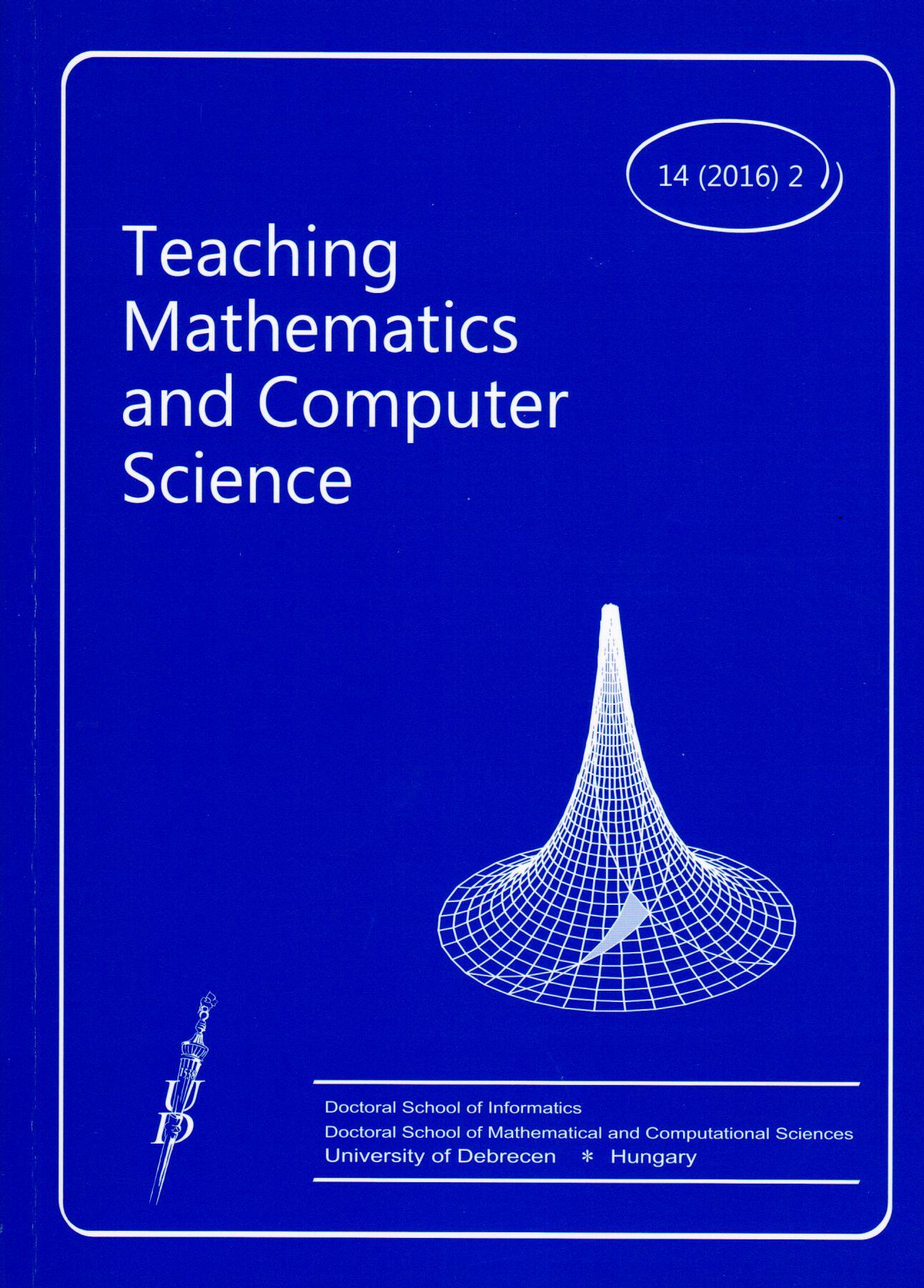Articles
The effects of chess education on mathematical problem solving performance
Published:
2016-12-01
Author
View
Keywords
License
Copyright (c) 2016 Anita Misetáné Burján

This work is licensed under a Creative Commons Attribution 4.0 International License.
How To Cite
Selected Style:
APA
Misetáné Burján, A. (2016). The effects of chess education on mathematical problem solving performance. Teaching Mathematics and Computer Science, 14(2), 153-168. https://doi.org/10.5485/TMCS.2016.0421
Abstract
We investigate the connection between the "queen of sciences" (mathematics) and the "royal game" (chess) with respect to the development of mathematical problem solving ability in primary school education (classes 1-8, age 7-15) where facultative chess education is present. The records of the 2014 year's entrance exam in mathematics – obligatory for the enrollment to secondary grammar schools in Hungary – are compared for the whole national database and for the results of a group containing chess-player students. The problems in the tests are classified with respect to the competencies needed to solve them. For the evaluation of the results we used standard mathematical statistical methods.

 https://doi.org/10.5485/TMCS.2016.0421
https://doi.org/10.5485/TMCS.2016.0421






